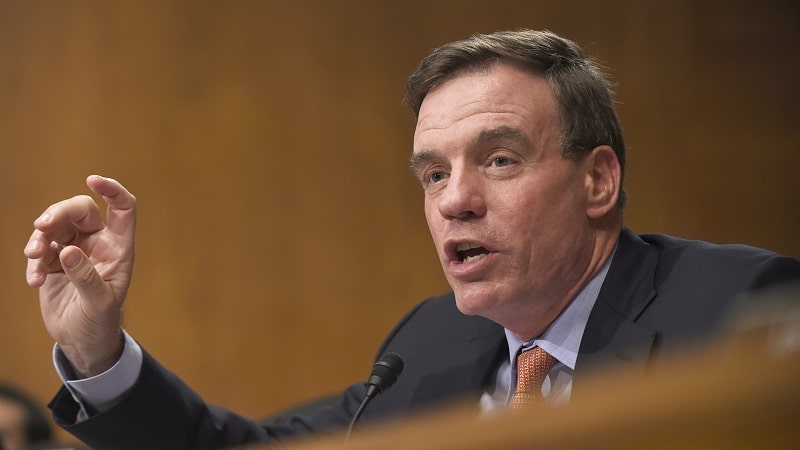
Radio frequency spectrum is scarce, and Senate Intelligence Committee Chairman Mark Warner, D-Va., said on Thursday that the United States needs more of it – including through sharing arrangements – not only to bolster innovation but also because spectrum is becoming increasingly crowded with users and applications.
During an Oct. 31 conversation with Punchbowl News, Sen. Warner explained that the Biden administration’s National Spectrum Strategy “is directionally right” as it aims to free up wireless spectrum.
“We have to free up more spectrum,” Sen. Warner said. “You just need more of it. I mean, this is beachfront property. They are not making more spectrum. So, how do we free up more of ours?”
While often unacknowledged, the senator said that radio frequency spectrum – or the radio waves that carry data and voice communications to smartphones and other devices – plays a crucial role in innovation.
“We need more spectrum, both from a standpoint of how we can continue to bring innovation to the marketplace, but we also need more spectrum because our spectrum is so overcrowded and we’ve got so many incumbent users,” Sen. Warner said.
“When we’re competing against China, they can wall off big blocks of spectrum and say, ‘Here’s where we’re going to go with 5G and 6G and beyond.’ And if we are trying to nibble a little bit here or there, that’s not a good way to approach it,” he explained.
The senator pointed to the Federal Communications Commission’s (FCC) effort to “rip and replace” untrusted IT equipment from communications service providers’ networks.
Specifically, the FCC’s Secure and Trusted Communications Networks Reimbursement Program funds the removal of communications equipment and services produced or provided by China-based Huawei Technologies Company and ZTE Corporation – as well as other providers that the Federal government may view as a national security threat.
“We need more spectrum ability to be auctioned off. We’ve got things like ‘rip and replace,’ where we were so slow at making the case that Huawei was a national security concern that now we’ve got to spend taxpayer dollars to rip out the equipment,” Sen. Warner said. “We’ve got to finish that.”
“We do have to push things that, again, those of us on the government side are reluctant to do, and that’s shared spectrum use,” he added. “We need to get this done. We need this for industry. We need this again, as we think about the next generation.”
The senator added that freeing up spectrum space will also help as we move beyond 5G and to Open Radio Access Networks (ORAN) and “more software-based systems rather than hardware-based systems.”
“That will open up the opportunity for a lot of American and our allies’ companies. These are more where our strengths are, but none of that is going to take place unless we’ve got a path for more spectrum auctions,” he said.
Additionally, the senator discussed how money from these spectrum auctions could help to fund other critical programs such as the FCC’s Affordable Connectivity Program (ACP) – which ended on May 31, despite some lawmakers’ best efforts to revive the program.
The ACP was the nation’s largest broadband affordability program, providing eligible households a discount of up to $30 per month on their internet bills, and up to $75 for households on qualifying Tribal lands. Twenty-three million U.S. households participated in the program.
“I think there are ways to get us toward an affordability plan that makes sense. We do need to continue these subsidies,” Sen. Warner said.
“But I come back to the basic point that with the money that we got for broadband … there was $10 billion in the last Trump COVID package, we got some more in the American Rescue Plan, and then we got the $65 billion in the infrastructure bill,” he said, adding, “If we don’t get 97, 98 percent of all Americans with high-speed, affordable broadband within the next couple years, it will be failure of execution, not lack of money. We have enough money in the pipeline.”
